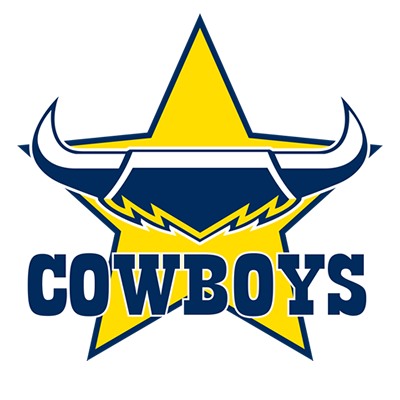manlyfan76
There is no A.I. Just better computers
A worring tale from junior sport, albeit from the US.
 www.nj.com
www.nj.com



Dramatization may not have happenedHe told a kid to slide. Then he got sued.
What happened next in an N.J. courthouse threatened to change youth sports forever.
By Steve Politi | NJ Advance Media for NJ.com
John Suk sits with shoulders slouched and his head down at the defendant’s table in Courtroom 301, a stuffy wood-paneled space inside the Somerset County judicial complex. The 31-year-old middle school teacher scribbles in a notebook as his reputation is shredded.
The plaintiff’s attorneys in Civil Docket No. L-000629-15 have spent two full days portraying the co-defendant as an inattentive and unqualified lout. He is, they argue, a villain who destroyed the future of a teenager he was supposed to protect.
“He must be held accountable for what he did,” one of the plaintiff’s two attorneys tells jurors during opening arguments.
The attacks intensify when Suk takes the witness stand to defend himself on a split-second decision he made seven years earlier. He is accused of taking a reckless course of action that showed a callous disregard for another person's safety.
He sounds like an awful person. Then you remember what Suk did to end up here.
He instructed a player he was coaching during a junior varsity baseball game to slide.
Not into an active volcano.
Not into a shark tank.
Into third base.
As I watch this unfold from the nearly empty gallery, I first am overcome with the ridiculousness of the scene. I chuckle when the words “bang-bang play” became courthouse vernacular, grimace when the quality of an opposing JV team is attacked as “awful,” and marvel at the surreal image of an attorney labeling a crude drawing of a baseball diamond as “Defense Exhibit 1.”
I had come to Somerville ready to ridicule, but it doesn’t take long for the gravity of the situation to hit me. If this jury of four men and four women decides Suk was reckless as a third-base coach for making this most routine decision, who else will end up in a courtroom like this someday?
What about the gymnastics coach who tells an athlete to tumble on a mat? Or the swimming coach who instructs a teenager to dive into a pool? Or the thousands upon thousands of parents who volunteer every weekend on soccer pitches and lacrosse fields and Little League diamonds?
If Suk is found liable for an injury that took place because of that slide — and if a seven-figure check is written because of his actions — what will happen to high school sports? Who will sign up for these coaching jobs knowing their reputation and livelihood might be in jeopardy? And how long before school districts drop sports entirely rather than pay skyrocketing insurance premiums?
So, yes, I have found the intersection of our overly litigious society and our out-of-control youth sports culture. As Suk sits there, scribbling away, I am consumed with a sickening thought: If this JV baseball coach is found liable for telling a player to slide, there's nothing to stop the dominoes from falling everywhere around us.
In short: We’re all f---ed.

Jake Mesar rolls up the leg of his pants to show jurors the scar from an injury he suffered sliding into third base years earlier. (Sketch by Mona Edwards)
Excerpt #1 from March 9, 2016 deposition. John A. Suk is questioned by Rubin M. Sinins, attorney for the plaintiff:
Q. You did signal for him to slide to third base, correct?
A. Correct.
Q. OK. What was the reason for that?
A. The proximity of the ball to the runner approaching third base.
Q. OK. Based upon your telling us that there was a play at third base.
A. Correct.
Q. OK. How close was he to third base when you signaled for him to slide?
A. Approximately six feet.
Q. He was running at full speed, correct?
A. Correct.
Q. Giving no indication that he was going to slide, correct?
A. He was running full speed around the bases. He — his eyes were not affixed on the ball. He did not see the ball coming. I did. Therefore, he was running full speed, but upon my decision and telling him at a safe distance to slide, he was able to do so.
Edward M. Coleman, gray-haired and bespectacled, settles into his seat behind the bench in Courtroom 301. He is a retired Superior Court justice who has been called back to ease the heavy caseload, a longtime criminal judge who once presided over one of the biggest cases the state has seen.
That was the manslaughter trial of NBA star Jayson Williams, a two-month legal odyssey that attracted nonstop coverage from Court TV.
This one is a bit different.
When the jurors are seated for the first time, on June 17, there is exactly one person in the gallery: me.
Coleman instructs the jury to keep an open mind during the proceedings, so I resolve to do so as well. That slide, of course, did not end well for the kid, and the story of what happens to him over the days, months and years after he hit the infield clay is awful in every way.
Jake Mesar steps down from the witness stand and, at the instruction of his attorney, rolls up the right pants leg of his tan Dockers. The jurors position themselves for a better look at the two nasty scars on his ankle.
Seven years ago, Mesar was a 15-year-old freshman at Bound Brook High School and the best player on his junior varsity team. He already had made the varsity basketball team that winter, and given his talent and passion for sports, this seemed like the beginning of an athletic career that might go down in school history.
Then came April 4, 2012.
We will hear — in excruciating detail — what the plaintiffs believe Suk did and did not do on that day when Bound Brook played its first game of the season, at Gill St. Bernard’s in Gladstone. Before traveling down that rabbit hole, let’s review the facts not in dispute.
Did the coach sitting with his head down at the defense table really ruin this kid’s life?
The visiting team was leading, 6-0, in the top of the second inning when Mesar, batting for the second time, laced a line drive over the left fielder’s head.
Two runs scored. Mesar rounded second and headed for third. And next, a sickening sound echoed across the diamond as he hit the ground.
“POP!”
As Mesar wailed in agony, Suk (pronounced SOOK) rushed to his side. So did the player’s father, Rob Mesar, who was keeping the scorebook in the dugout. An ambulance arrived. No one knew it then, but that promising freshman — two innings into his high school career — would never play another baseball game.
“I felt bad for my parents,” Jake Mesar, now 22 and attending Rutgers, testifies on the second day of the trial. “They would never be able to see me play.”
Baseball was the least of his worries. Even after three surgeries, the ankle was not improving — one doctor even presented amputation as a possible outcome. A specialist from the Hospital for Special Surgery in Manhattan, Robert Rozbruch, found post-traumatic arthritis and signs of necrosis — evidence the bone was dying.
Mesar needed two more surgeries, including one to inject stem cells into the ankle tissue, and he was fit with an external fixator, a stabilizing frame to keep the bones properly positioned. The injury improved, but Rozbruch told the once-active teenager to avoid high-impact activities. Even jogging.
When it comes time for Rozbruch to testify, he abandons the clinical language of his profession and makes it clear that Mesar’s baseball dreams died on third base that day.
“He will never recover fully,” the doctor says.
It is more than a physical injury. Mesar has endured frequent bouts of depression and a pair of panic attacks, including one that sent him from a family party on Christmas Eve to the emergency room. The injury is, as his lawyer tells the jury, “something he has to live with every minute, every hour, every day of his life.”
All of this, to use a decidedly non-legal word, sucks. How can anyone sit here, listen to his story and not have your heart break?
Still, injuries happen. That is at the cold reality of sports. Did the coach sitting with his head down at the defense table really ruin this kid’s life?

John Suk was coaching his game at the high school level when Mesar suffered his injury. “Was it hard to sleep some nights? Yeah.” (Andrew Mills | NJ Advance Media)
Icould be John Suk. You could be John Suk. It isn’t hard to imagine switching places with this former high school catcher, sitting there in his black suit and wrinkled gray shirt. He takes notes to distract himself from the constant verbal assaults.
Early during voir dire, it becomes clear that picking a jury without including someone who has coached on some level is nearly impossible. Who, when you reach a certain age, hasn’t told a kid to dive for a ball and not worried as he or she hit the ground with a thud?
For most of us with kids, it’s a short chapter. No one else will do it. Or a friend coaxes us into “doing it for the kids.” The commitment runs a season or two.
Not so for Suk. That game on April 4, 2012, was Suk’s first time coaching on the high school level. He was 23, still not a full year removed from FDU-Madison, coaching at Bound Brook for just a few weeks after his predecessor abruptly resigned.
He is 31 when he walks into Courtroom 301. Do the math: This incident has hovered over him in some form for nearly a quarter of his life, always there, always grinding along without resolution.
“Was it hard to sleep some nights? Yeah,” Suk tells me. “It was hard knowing that I had to explain myself, over and over and over again. It took the fun out of the job because I kept on thinking, ‘He could be the next kid who comes up with a lawsuit.’ You know? The odds are slim but you don’t want to go through something like this again.”
He learns he was named in the lawsuit when a claims examiner from New Jersey Schools Insurance Group, the firm that insures Bound Brook and 375 other public schools, showed up at his new job at North Brunswick High. This was in the winter of 2015, nearly three years after the injury.
His initial shock is met with assurances from the insurance rep that this case probably would never see a courtroom. He gave a deposition in 2016 and, when a judge granted a summary judgment to the defense on Feb. 17, 2017, he figured he had put the entire episode behind him.
He was on his way to a freshman baseball game on May 2, 2018, when a friend texted him.
“Why are you getting sued?” the message read. Not only had Mesar’s attorneys won the appeal, but a news story about the case was getting national attention because of the eye-popping headline.
“Baseball player sues coach for telling him to slide.”
His sister heard his name on Jersey 101.5. His parents started to worry about the stain on his reputation. Suk, never a fan of attention, now had the incident tacked onto his life in a very public way. He had to explain what happened, at parties or at games or in school, whenever someone he knew made the connection.
Who, when you reach a certain age, hasn’t told a kid to dive for a ball and not worried as he or she hit the ground with a thud?
“I have to tell you, my son was crushed,” says his mother, Franca. “He told me that he was done with coaching if he lost this case. This changed who he is a little bit.”
He was never going to lose any money out of his own pocket. But when NJSIG, as the insurance company is called, decides to draw the line in the sand and fight the case to the end, he knew he was facing a day like this in a courtroom. Eventually.
But “never for even a minute did I think it would take seven years for this to finally get to a trial,” Suk says.
He says he isn’t worried as he walks into Courtroom 301. He knows for Mesar to win, his attorneys must prove Suk’s actions met a standard of recklessness under New Jersey case law that is defined as “an extreme departure from ordinary care in which a high degree of danger is apparent.”
Common sense, he keeps telling himself, will prevail.
Surely, the eight people in the jury box will see that this accident — as awful as it has been for the kid sitting a few feet away — isn’t his fault.
Right?
But, midway through the two days of testimony, I’ll be damned if the opposite thought isn’t creeping into my head: He’s actually going to lose this thing.

John Suk had his qualifications as a high school coach and judgment questioned when he testified during the trial. “He must be held accountable for what he did,” an attorney for the plaintiff said. (Sketch by Mona Edwards)
Excerpt #2 from March 9, 2016 deposition. John A. Suk is questioned by Rubin M. Sinins, attorney for the plaintiff:
Q. You gave him a signal to slide when he was approximately six feet from the base, correct?
A. Correct.
Q. And by your past answer, I take it that it’s your position that being six feet from a base with a runner running full speed, that it’s a safe distance to begin a slide?
A. Yes.
Q. What distance is not a safe distance for a runner to begin a slide?
A. Any distance inside two feet.
Q. There would be no reason for a third-base coach to signal a player to slide into third base if there was not a potential play at third base?
A. Correct.
Q. Because sliding is dangerous?
Defense: Objection
A. Sliding is a potentially dangerous activity, yes, but with proper training and teaching and the plaintiff’s player experience, he could safely do so in an attempt to avoid injury.
Suk ambles to the witness stand, raises his right hand and swears to tell the whole truth and nothing but the truth. The jurors sit up.
This is the person they want to hear testify.
They had spent the morning listening to testimony from Mesar, his father and the surgeon who saved his ankle. They started the afternoon hearing from one of the umpires, a moment that ended in disaster for the defense when part of his testimony was struck from the record because he didn't remember the play at third.
Now, defense attorney William Bloom takes Suk through the play that led to the injury — the long hit to left field, the two runners scoring, the third baseman straddling the bag and, finally, Mesar rounding second at full speed.
“I see Jake approaching third base and I also see the ball traveling in flight,” Suk says. “I make the decision for him to slide, to avoid injury and to avoid contact (with the third baseman), so he could approach the bag safely. ...
“It was going to be a bang-bang play.”
Bloom needs only nine minutes, and as he walks back to his seat, it seems so silly and simple. And then comes the cross-examination, and right away, I begin to wonder if we're talking about the same play.
The plaintiff’s attorneys are no rookies. Eric Kahn and Rubin Sinins were involved in another of this century’s highest profile cases in New Jersey, representing one of the Rutgers students accused of spying on a fellow student Tyler Clementi days before his suicide.
Sinins attacks Suk’s qualifications and points out he never took courses in baseball instruction — “in hitting, fielding, throwing, catching or sliding.” He grills the coach on where he was looking when Mesar was charging to the base, hammering home the point at the core of the plaintiff’s case:
That Suk was focused on the runners going home.
That he never looked toward Mesar until he was dangerously close to third base.
That there was never going to be a play at third base — “bang-bang” or otherwise — which means a slide was completely unnecessary in a blowout.
That Suk pivoted and made the signal to slide at the last minute, too late for Mesar to adjust his body properly and causing the injury.
That he knew sliding was unsafe and still instructed the freshman under his watch to do it anyway.
That all this, when factored together, was reckless.
“We have established that the fence is 315 feet, and that this is a JV game at Gill St. Bernard’s,” Sinins says. “And you’ve heard testimony that the Gill St. Bernard’s team stunk. Is that fair?”
“Sir, my opinion of their team has no bearing —” Suk answers.
“You’re telling this jury that the JV left fielder for the Gill St. Bernard’s team reached the ball at the fence and threw a strike to the third baseman?” Sinins asks. “That’s what you're telling this jury?!”
By the end, the whole thing feels like an Abbott & Costello routine — second base, left field, I don’t know, third base! — and I start to wonder if the jurors can follow the details.
Sinins punctuates the grilling with a moment that seems stolen from a bad episode of Law & Order. He reads Suk’s deposition testimony from three years ago, when the coach said a slide was safe anywhere from outside of two feet. Then he approaches the witness stand and stands with his body pressed against it.
“I am now two feet from you,” he says. “It was your belief that a runner running at full speed from this distance that you could safely instruct him to slide into third base.”
“Is that your position?”
By the end, the whole thing feels like an Abbott & Costello routine — second base, left field, I don’t know, third base! — and I start to wonder if the jurors can follow the details. It has become a classic he-said/she-said case — or he slid, she slid — with the word of a father and son against that of a coach.
Then again, if they’re debating blurry facts from a long-ago game at all, Kahn and Sinins have managed to steer them away from the only thing that really matters.
That Suk — or any coach in any sport — cannot be “reckless” when instructing a player to do something as routine as sliding into a base during a baseball game.
Would that jury agree?

Jake Mesar (third from left) awaits the jury’s decision. “I don’t think the coach had any intention of hurting the kid when he told him to slide,” one of the jurors said. “It just ... happened.” (Sketch by Mona Edwards)
Lauren Palladino stands in front of her seat in the jury box and leads four men and three other women into the deliberation room. The court officer closes the door behind them.
It is 1:30 p.m. on Wednesday, and everyone left behind in the courtroom agrees: The longer they spend behind closed doors, the better for the plaintiff.
Mesar and his attorneys find seats just outside the courtroom.
Suk paces before sitting near the elevators down the hall.
They wait.
Palladino knows that money — a lot of money — is riding on their decision. Coleman had told them that, if they found Suk had acted recklessly, to take into account Mesar’s life expectancy when considering damages for his pain and suffering.
That number was 59.6 years. Any verdict in his favor easily would exceed seven figures.
Inside that room, they go back over the play at third base, grappling with an inconsistent and incomplete set of facts. It is clear, through interviews with six of the jurors later, that the personal experiences of the jurors play a large role in how they see this case.
She had arrived at the Somerset County courthouse on Monday hoping to get picked for a case, even if it meant missing a few waitressing shifts at California Pizza Kitchen at the Bridgewater Commons Mall. This was her first time called for jury duty, and she was curious.
“I had no idea what to expect,” she will tell me after the trial.
She is 22 and a rising senior at Rowan University. She found herself connecting with Mesar during the trial. She was his age, and like him, an athlete; she played softball in high school.
She is ready to side with him — until those final minutes before walking into deliberations. It wasn’t anything from the lawyers or witness testimony that starts to sway her, but the words from Coleman as he read the legal definition of recklessness.
“I don’t think the coach had any intention of hurting the kid when he told him to slide,” Palladino says. “It just ... happened.”
In the deliberation room, she quickly learns five jurors agree with her and two do not. Seven of the eight must agree to reach a verdict.
Thirty minutes pass.
The doors to the courtroom suddenly open and everyone rushes to their seats, but there is no verdict. The jurors have sent a note to the judge, asking for copies of the depositions of Mesar, Suk and the umpire — information which is off-limits because it was not introduced at the trial.
The doors close again. It feels like a good sign for the plaintiffs. An hour passes, then an hour and a half.
Inside that room, they go back over the play at third base, grappling with an inconsistent and incomplete set of facts. It is clear, through interviews with six of the jurors later, that the personal experiences of the jurors play a large role in how they see this case.
Juror No. 1 is a soccer fan who broke his nose playing the game. Juror No. 7 is a grandfather who still plays recreational softball and rattled off a list of injuries during voir dire. Palladino herself leans on her experiences.
“How was the coach reckless?” she tells the seven others. “That’s how you play the game.”
A seventh juror, a nursing student, changes her mind and sides with the six others.
Nearly two hours have passed.
The doors to the courtroom open again.
This time everyone gathers knowing this seven-year legal odyssey is about to end.
When the foreman reads the verdict — “seven no, one yes” — I wait for a show of emotion, tears from the former baseball player or a fist pump from the vindicated coach.
Nothing comes.
Mesar turns to face his father. Suk picks up his notebook. The lawyers shake hands and the room clears quickly.
Palladino is back at California Pizza Kitchen the next day. When a bartender tunes a flat screen television to a baseball game, she tells co-workers about the trial that caused her to miss work that week. Their reply should come as no surprise.
“Wait. Are you serious?”

New Jersey Schools Insurance Group spent about $75,000 to fight this case in court. Its chief legal officer is already using it as a teaching tool with school administrators. (Andrew Mills | NJ Advance Media for NJ.com)
From the moment Jake Mesar made that fateful slide into third base until Civil Docket No. L-000629-15 was resolved, exactly 2,625 days passed. Jill Deitch, chief legal officer for NJSIG, estimated the insurance company spent more than $75,000 in legal fees to fight the case, and that doesn’t include the countless hours it consumed her staff.
That is the price of drawing a line in the sand. She already has used the case at a New Jersey State Interscholastic Athletic Association workshop called “Legal Liability and Athletics.”
“Coaches and athletic directors have so much to deal with,” Deitch says. “This kind of lawsuit second-guessing a coach’s direction to slide should not be one of them.”
Rob Mesar, meanwhile, is convinced his own clumsy testimony doomed his son’s chances to win the case. But it is the play at third base itself that consumes him, night after night, and he figures it will for the rest of this life.
I ask him: Was all this fair? Suing a coach?
He says he is a business owner who would never file a frivolous lawsuit. He believes his son was wronged, that too many of the facts of what happened on that ballfield didn’t come to light in the trial.
He doesn’t lay all the blame at Suk’s feet. He wants accountability from administrators who gave him the job without, he believes, enough preparation to keep his son safe. What about the next kid? Who will protect him?
“You have people just taking the extra $8,000 who don’t know what the hell they’re doing,” Rob Mesar says. “Somebody’s got to be responsible. Nobody is!”
Suk, meanwhile, couldn’t wait to get back to his house and clear out the folders and envelopes full of documents he has accumulated. As he leaves the courtroom, his phone lights up with texts from curious friends.
Well? Any news?
He answers a few on the courthouse steps, then he sits with me across the street in an otherwise empty deli. He says he is surprised the jury took as long as it did to reach a verdict.
I ask him to consider the other scenario: What would have happened if he lost?
“It’s the end of high school sports,” he says. “The coaching profession would be under heavy scrutiny for everything that happens. Coaches are going to have to have insurance like doctors have for malpractice. School districts are not going to want to take the risk of having sports.”
He takes a long pull from his bottle of water.
The clouds that had covered the sky for most of the day are clearing, giving hope that North Brunswick’s summer team might not lose another day off the calendar to bad weather.
The case is closed. The weight is lifted. He checks his watch, shakes my hand, then heads off to find his car. He has to hurry.
He has a baseball game to coach.
Dramatization may not have happened
NeinTake 1.86372 seconds to google it ...
I hate ambulance chasing lawyers.....
Absolute rodents but symptomatic of how the US legal system has been for years.I hate ambulance chasing lawyers.....
I may have already told this story, so skip it if you’ve heard it.I coach baseball and have done exactly whst this guy did many, many times.
Had many a nrl and rugby coach tell me to run straight at big blokes too.
I can picture it actually. Baseball back then was "hardball".I may have already told this story, so skip it if you’ve heard it.
I was introduced to baseball at 17yrs old. My boss had, had a gut full of me turning up busted from league not to be able to perform my labour intensive job. He knew I was a sports nut and suggested something less aggro like baseball. It was that or my job, so I went along to my local baseball club and signed up. Told them I had absolutely no experience with the game.
Not to worry. They’ll look after me.
So after a short period of practicing, helped along by blokes that had being playing for years, I was ready for my first game. As it happened my boss only lived a short distance from the grounds, so he said he’llcome along and bring the family to watch (seens as it was one of the few times I’d actually taken his advice).
Apart from the uniform, which I thought was cool, I was expecting to be lulled asleep.
How wrong could I have been. Within five minutes our huge first baseman misjudged a return from our short stops lethal return. Next thing he’s down in agony, blood coming from the eye. He was treated and left for hospital with a fractured eye socket.
So by now, I’m starting to think this might not be the poofters game I thought it would be.... (hey! It was the 80’s, PC talk was still a long way off.).
So next up, their pitcher threw a ball that hit one of our older guys in the helmet....dropped him like a sack of spuds. Next thing it was on! I was dragged out of our dugout by a team mate (who happened to be a senior constable at the local cop shop), and was told to get out there and belt the opposition regardless. (I ran on, and was swiftly belted in the mouth by the oppostion). I remember being helped from the field, and looking at my boss in the crowd thinking, WTF!
There was a bit more argy/bargy for the rest of the game. Finally it was over.
My boss came down and apologised. I said are you kidding, apart from being punched in the head, I had a ball.
So I continued playing for another eight years. It might look boring to watch, but on ground baseball is a great game, not as good as league, but have plenty of good memories.
As for the story from MF76, I think it sucks that this bloke is in this predicament.
(ps. My boss and I catch up when he comes up to the GC, and he still reckons it’s the worst advice he’s ever given to an apprentice! lol)
I have to say, the comradely back then was as good if notI can picture it actually. Baseball back then was "hardball".
Bit softer now as violence is absolutely not permissible.
I may have already told this story, so skip it if you’ve heard it.
I was introduced to baseball at 17yrs old. My boss had, had a gut full of me turning up busted from league not to be able to perform my labour intensive job. He knew I was a sports nut and suggested something less aggro like baseball. It was that or my job, so I went along to my local baseball club and signed up. Told them I had absolutely no experience with the game.
Not to worry. They’ll look after me.
So after a short period of practicing, helped along by blokes that had being playing for years, I was ready for my first game. As it happened my boss only lived a short distance from the grounds, so he said he’llcome along and bring the family to watch (seens as it was one of the few times I’d actually taken his advice).
Apart from the uniform, which I thought was cool, I was expecting to be lulled asleep.
How wrong could I have been. Within five minutes our huge first baseman misjudged a return from our short stops lethal return. Next thing he’s down in agony, blood coming from the eye. He was treated and left for hospital with a fractured eye socket.
So by now, I’m starting to think this might not be the poofters game I thought it would be.... (hey! It was the 80’s, PC talk was still a long way off.).
So next up, their pitcher threw a ball that hit one of our older guys in the helmet....dropped him like a sack of spuds. Next thing it was on! I was dragged out of our dugout by a team mate (who happened to be a senior constable at the local cop shop), and was told to get out there and belt the opposition regardless. (I ran on, and was swiftly belted in the mouth by the oppostion). I remember being helped from the field, and looking at my boss in the crowd thinking, WTF!
There was a bit more argy/bargy for the rest of the game. Finally it was over.
My boss came down and apologised. I said are you kidding, apart from being punched in the head, I had a ball.
So I continued playing for another eight years. It might look boring to watch, but on ground baseball is a great game, not as good as league, but have plenty of good memories.
As for the story from MF76, I think it sucks that this bloke is in this predicament.
(ps. My boss and I catch up when he comes up to the GC, and he still reckons it’s the worst advice he’s ever given to an apprentice! lol)
Booo, hisss.Having played baseball in my ... only a few years ago ... I concur. I still love the game (and was very happy the Dodgers finally won another World Series this year)
Booo, hisss.
Without them sport will die, and kids will get all their 'exercise' from a keyboard.
You still charging through from xmas? Read the story champ or don’t post stupid comments.Dramatization may not have happened
LOL. We used to have a catcher who was a big boy, probably north of 120kg. He loved setting up shop on the line in front of home plate daring runners to go through him to score. He didn't lose too many of those contests, and he was always accommodating if a batter wanted to go on with it.I may have already told this story, so skip it if you’ve heard it.
I was introduced to baseball at 17yrs old. My boss had, had a gut full of me turning up busted from league not to be able to perform my labour intensive job. He knew I was a sports nut and suggested something less aggro like baseball. It was that or my job, so I went along to my local baseball club and signed up. Told them I had absolutely no experience with the game.
Not to worry. They’ll look after me.
So after a short period of practicing, helped along by blokes that had being playing for years, I was ready for my first game. As it happened my boss only lived a short distance from the grounds, so he said he’llcome along and bring the family to watch (seens as it was one of the few times I’d actually taken his advice).
Apart from the uniform, which I thought was cool, I was expecting to be lulled asleep.
How wrong could I have been. Within five minutes our huge first baseman misjudged a return from our short stops lethal return. Next thing he’s down in agony, blood coming from the eye. He was treated and left for hospital with a fractured eye socket.
So by now, I’m starting to think this might not be the poofters game I thought it would be.... (hey! It was the 80’s, PC talk was still a long way off.).
So next up, their pitcher threw a ball that hit one of our older guys in the helmet....dropped him like a sack of spuds. Next thing it was on! I was dragged out of our dugout by a team mate (who happened to be a senior constable at the local cop shop), and was told to get out there and belt the opposition regardless. (I ran on, and was swiftly belted in the mouth by the oppostion). I remember being helped from the field, and looking at my boss in the crowd thinking, WTF!
There was a bit more argy/bargy for the rest of the game. Finally it was over.
My boss came down and apologised. I said are you kidding, apart from being punched in the head, I had a ball.
So I continued playing for another eight years. It might look boring to watch, but on ground baseball is a great game, not as good as league, but have plenty of good memories.
As for the story from MF76, I think it sucks that this bloke is in this predicament.
(ps. My boss and I catch up when he comes up to the GC, and he still reckons it’s the worst advice he’s ever given to an apprentice! lol)
| Team | P | W | L | PD | Pts |
|---|---|---|---|---|---|

|
7 | 6 | 1 | 54 | 14 |

|
6 | 5 | 1 | 59 | 12 |

|
6 | 4 | 2 | 53 | 10 |

|
6 | 4 | 2 | 30 | 10 |

|
7 | 4 | 2 | 25 | 9 |

|
8 | 4 | 4 | 73 | 8 |

|
7 | 4 | 3 | 40 | 8 |

|
7 | 4 | 3 | 24 | 8 |

|
7 | 3 | 4 | 17 | 8 |

|
7 | 4 | 3 | -8 | 8 |

|
8 | 4 | 4 | -60 | 8 |

|
8 | 3 | 4 | 17 | 7 |

|
6 | 2 | 4 | -31 | 6 |

|
7 | 3 | 4 | -41 | 6 |

|
7 | 2 | 5 | -29 | 4 |

|
7 | 1 | 6 | -87 | 4 |

|
7 | 1 | 6 | -136 | 4 |